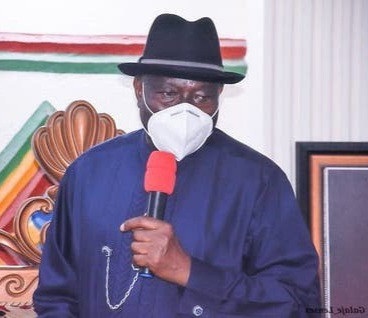Former Goodluck Jonathan has spoken up against antagonism between past leaders and serving leaders in some African countries.
The former president who spoke on Wednesday, November 24, at a strategy meeting of the West African Elders Forum (WAEF) in Abidjan, Côte d’Ivoire, said the antagonism between past leaders and serving leaders does not encourage the healthy practice of democracy.
In a statement released by his communications officer, Wealth Ominabo, the former President was quoted saying;
“One grey area we have to look into is the observed antagonism between past leaders and serving leaders in some countries of the sub-region. This does not encourage the healthy practice of democracy.
“Also, in some of our countries, the democratic space appears to be shrinking. There is the need to figure out how to navigate through such challenge to grow democracy in West Africa and the rest of Africa.
“As a forum, we believe so much in preventive diplomacy. One of our objectives is to ensure that we shore up the democratic gains of our region by meaningfully engaging different stakeholders in a pragmatic and responsible manner.
“Meetings like this serve as an opportunity to review the gains, challenges and threats to peace and democracy in our sub-region and help us strategise on how to mediate so that threats do not degenerate into conflicts.
“As democrats, we believe elections are the cornerstone of democracy, and the activities surrounding the process could either make or mar the developmental aspirations of a nation. Election affords citizens the opportunity to have a say in their nation and gives them the opportunity to participate in the leadership recruitment process of their country.
“From recent events in Africa, we can draw a lesson on the relationship between peaceful elections, democratic sustenance, and national stability. This is why every process leading to the election is very important to the outcome of the poll.
“In our sub-region, Nigeria, Sierra Leone, and Liberia have scheduled general elections next year, and, as we know, elections could serve as a major trigger for violence and instability in our continent.
“This is why it is important we closely monitor the electioneering processes in these countries and watch out for signs that may precipitate crisis.
“As elders, it is our responsibility to identify threats to the transition programmes in our sub-region and seek ways of proactively engaging relevant stakeholders toward resolving such challenges.”

